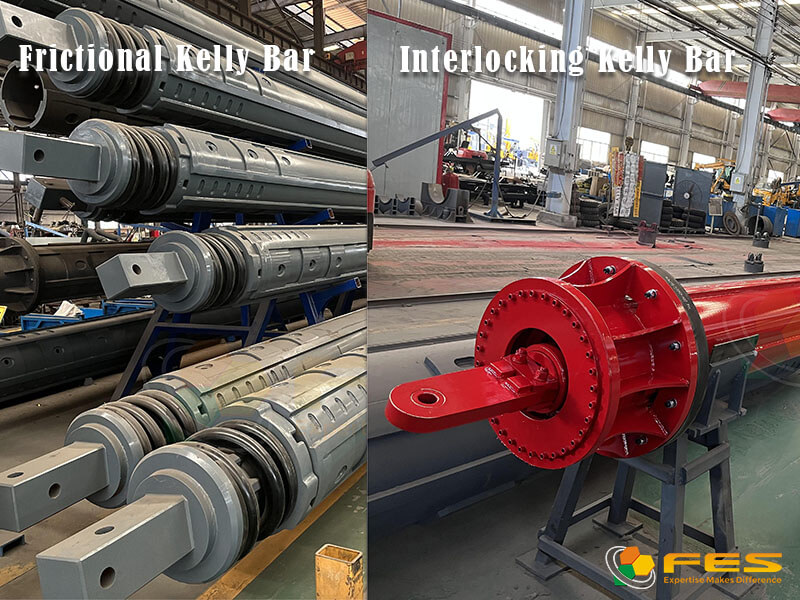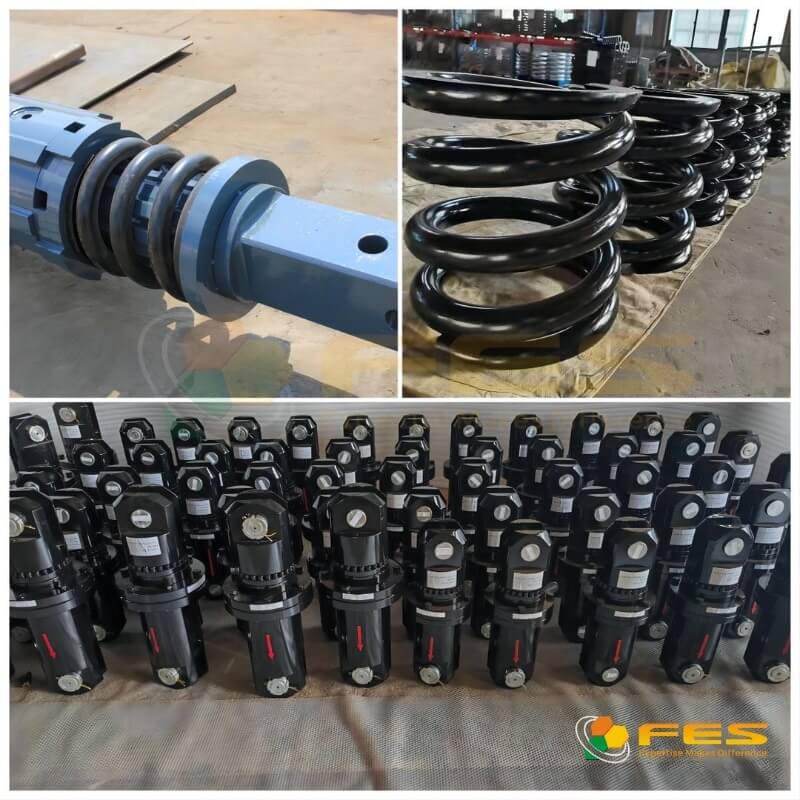Types of Kelly Bars
The Kelly bar is an essential component of foundation drilling rigs, crucial for transmitting torque and pressure necessary to break and remove the formation during drilling operations. Typically, a Kelly bar is a telescopic piece of equipment consisting of inner and outer bars that can extend and retract, accommodating various drilling depths. Its design allows for efficient and effective drilling, especially in challenging environments.
Types of Kelly Bars
Kelly bars are generally classified into two main types based on their mechanism and application:
|
Type |
Description |
|
Friction |
Uses friction to transmit torque, ideal for soft formations. |
|
Interlocking |
Uses mechanical interlocks to transmit torque, suitable for hard formations, providing higher torque transmission capabilities. |
Each type is designed to cater to specific drilling conditions, ensuring optimal performance and reliability.

Key Factors Influencing the Use of Kelly Bars
Dealers and contractors who supply or use drilling rigs depend a lot on Kelly bars because they are versatile and strong. Key factors that influence their choice of Kelly bars include:
|
Factor |
Importance |
|
Compatibility |
Ensures the Kelly bar fits various drilling rigs effectively. |
|
Strength |
Determines the bar's ability to withstand high torque and pressure. |
|
Craftsmanship |
Reflects the quality of materials and techniques used on construction projects. |
|
Durability |
Indicates the lifespan and reliability of the Kelly bar under different drilling conditions. |
These factors are critical in ensuring that the Kelly bars can handle the demands of drilling operations efficiently.
Advantages of Using Kelly Bars on Small Drilling Rigs
Our small drilling rigs, equipped with advanced Kelly bars, offer numerous advantages:
- Enhances Stability and Precision: The unique design of the Kelly bar significantly improves the stability and precision of small drill rigs. Its polygonal cross-section prevents the drill rod from uncontrolled rotation during the drilling process, ensuring that the drill bit advances steadily along the predetermined path. This stability is particularly important for small drilling rigs, which are often used for precise and intricate drilling tasks.
- High Compatibility Provides Convenience: Our small drilling rigs lie in high compatibility. It seamlessly fits a wide range of drilling rigs from manufacturers like Bauer, Liebherr, and Soilmec, ensuring optimal performance and efficiency across different models. This versatility makes it the preferred choice for our versatile small drilling rigs.
- Telescopic Design enhances convenience: The Kelly bar enables efficient operation in limited space and low headroom areas, achieving substantial drilling depths with its telescopic interlocking mechanisms, ideal for small drill equipment. Meanwhile,
the telescopic design on small drilling rigs allows for convenient transportation and deployment. It can be transported with a Kelly bar eliminating cost-saving logistics and reducing loading/unloading time.
Conclusion
Compact drilling rigs, equipped with high-quality Kelly bars, offer significant advantages, making them a valuable asset for any drilling project. Understanding the importance and application of Kelly bars on a small drill rig machine helps manufacturers, dealers, and contractors make informed decisions to optimize their drilling operations, ensuring success and reliability in the field.





